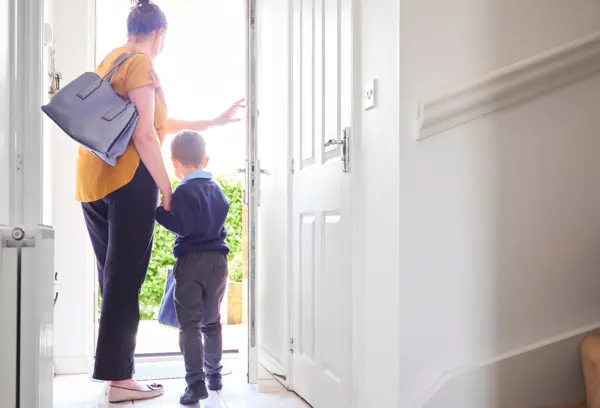How to help a foster child transition to a new school
Date published
21 August 2023

Starting a new school can be an exciting opportunity, but it can also be daunting for a lot of children and young people. This is especially true for foster children, who are likely to have already experienced a large amount of change in their lives.
Compared to those who have not been in care, looked-after children have a high rate of school instability, with 8% moving schools at least once in the middle of an academic year.* Looked-after children are also less likely to do well at school, with fewer than half achieving five or more GCSEs A*-C.**
When a foster child transitions to a new school, whatever their age, they are likely to be anxious about the further uncertainties and adjustments they may face. Foster carers can play a significant role in helping these resilient children not only adapt but also flourish in their new school.
By providing support and understanding, foster carers can make this challenging change much easier. Here are our five top tips for helping a foster child settle into a new school…
It’s important to try and build a strong and trusting relationship with your foster child from the outset. Empathy and patience can go a long way, so let them know you are there to listen, support, and guide them through this transition. Showing a genuine interest in your foster child’s experiences, concerns, and aspirations can also help to create a safe space for them to express themselves. Acknowledge and celebrate accomplishments, whether big or small, as this can boost self-esteem and motivation. It may take a while for a foster child to settle into a new school, but being patient and supportive can help.
Open communication is essential. Make sure to regularly check in with your foster child about their school experiences, addressing any fears or anxieties they might have. Create an environment where they feel comfortable discussing their feelings. Many foster children may suffer from anxieties around abandonment, so even letting them know what time you will be there to collect them from school could help. Communication with your support network is also important. You may want to reach out to the school, your social worker, and the team at Olive Branch Fostering for additional help and advice.
Before your foster child’s first day, you might be able to take a tour of the school together. Familiarising your foster child with the layout of the school, classrooms, canteen, playground, and other key locations can help alleviate any anxiety about navigating the new environment. Alternatively, a member of staff or peer ‘buddy’ may be able to show your foster child around. They may even be able to start in a gradual way, coming into school for a morning at first and then a full day. Investigate what arrangements can be made to make things easier.
Introducing your foster child to important school staff, including teachers and the headteacher can create a sense of belonging and show that a support system is in place. It might be a good idea to ensure staff are aware of the child's background, potential triggers, or learning preferences, which will enable them to provide tailored support. For some, such as Unaccompanied Asylum-Seeking Children, this might include the school understanding the child's cultural background. Collaborate with teachers to monitor progress and address any challenges promptly. By advocating for your foster child’s education, you can contribute to their academic success and overall well-being.
Consistency can provide a sense of much needed stability for foster children. It is a good idea to establish a daily routine, which could include wake-up times, meals, homework time, and extracurricular activities. This structure can help the child feel more secure and focused. A bedtime routine is especially crucial for making sure your foster child gets enough sleep and is well-rested for the day ahead at school.
Guiding a foster child through the process of settling into a new school requires patience, empathy, and a commitment to their growth. By establishing a supportive foundation, maintaining open communication, and addressing their individual needs, foster carers can empower foster children to embrace their new educational journey with confidence and resilience. Your efforts, no matter how small, can create a lasting positive impact on these young lives.
Could you make a difference to the lives of children and young people in your area? Start your application today with Olive Branch Fostering today. Our friendly team are on hand to answer any questions you may have, as well as support you in starting your fostering journey.
To make a start on your application, call us on 01706 558910 or contact us online and we’ll be in touch.
Fostering insights
21 August 2023